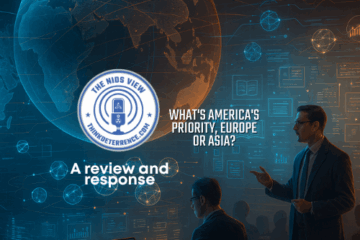Advocates of nuclear abolition wish humanity could live in a world without nuclear weapons. However, results of such a policy could be catastrophic.
Bad actors, for example, would likely cheat on such a ban. Russia, for example, has a long track record of cheating on international agreements. As with all law, it is only the honest who follow the rules. The dishonest are incentivized to cheat in order to employ nuclear coercion, or even nuclear attack, in a time of crisis.
Scenario analysis of possible results from denuclearization suggest there is significant risk to such a move. Removing the constraints on conventional war, which mutual nuclear deterrence has provided since 1945, could serve as the catalyst for expanded conventional conflict. Disarmament would not eliminate nuclear arms design knowledge. Instead, the world would rely on a shaky monitoring regime to ensure no misuse of such knowledge.
Without the impediment of a nuclear-armed adversary, great-power war would return with gusto. Some simple actuarial calculations are revealing. First, about 80 million soldiers and civilians were killed in World War II. An equivalent war today, accounting for population growth, gives an approximate death toll of 325 million. This estimate could be too low, given modern military capabilities.
There is a myth that modern war produces less collateral damage and fewer civilian casualties due to precision-guided munitions, prevailing humanitarian restraint, and improved medicine. Actual conditions in Gaza, Syria, and Ukraine illustrate that this is a myth. Modern conventional warfare tends to equal the destructive capacity of that in the twentieth century.
Similarly, the idea that ethnic cleansing (genocide) is a thing of the past is also false. The Balkans, Ukraine, and Xinjiang are all examples.
Other likely side effects of conventional great-power war deserve consideration. War creates refugees, expanding troop requirements, violence, stress, deprivation, and overtaxed medical systems.
If Americans thought the loss of life during the COVID-19 pandemic was terrible, and the global death toll was about seven million, how many more will the next world war kill? Lest we forget, the American medical system was overtaxed by a flu virus that left only a small percentage of the population needing medical care. If the next world war brings the fight to the United States and the American people, the medical crisis will prove far greater.
Furthermore, during the next world war, the current focus on manufacturing consumer goods will shift to a focus on producing war materials as nations exhaust their financial resources to wage war. Environmental regulations, child labor laws, and the other luxuries of peace will certainly be cast aside as victory becomes the primary concern.
Nuclear disarmament also has another consequence that should enter the equation. The nation(s) losing the war or those fearful of being pulled into war may very well turn to the covert development of nuclear weapons to either win or prevent attack. In short, the genie will likely escape the bottle once again, but without the benefit of providing pre-war deterrence. The scientific knowledge and engineering know-how to build nuclear weapons will never go away. Neither will ample supplies of special nuclear material.
A race among combatants to be the first to build new nuclear weapons would likely result. With trust at zero, an incentive to go nuclear is certain. As a conventional World War III wore on, anger, panic, grief, and revenge would likely feed the collapse of restraint. A rebirth of the most powerful nuclear weapons possible is likely. International law would prove meaningless as the fear of defeat loomed. Events far more terrible than Hiroshima and Nagasaki may follow.
Advocates of nuclear abolition argue that without global denuclearization, the accidental launch of a nuclear weapon or use by miscalculation is very likely, even if deterrence never fails. The disarmament community wants it both ways, while ignoring basic human nature.
Focusing on solid risk-mitigation decisions is a better option than the risky course of nuclear abolition. Assertions that general nuclear war is inevitable and will kill millions before bringing about nuclear winter is bad science and worse strategy. It attributes high probabilities where none exist.
Effective nuclear deterrence can sustain peace as it has for seven decades. Efforts to abolish nuclear weapons are based on emotion rather than a well-founded understanding of human nature. It is time we fully consider the consequences of a world without nuclear weapons. They are certainly not attractive. We know what that world looks like because we have seen it before.
Aaron Holland is an Analyst at the National Institute for Deterrence Studies.
Joe Buff is a risk-mitigation actuary researching modern nuclear deterrence and arms control. The views expressed in this article are the authors’ own.






